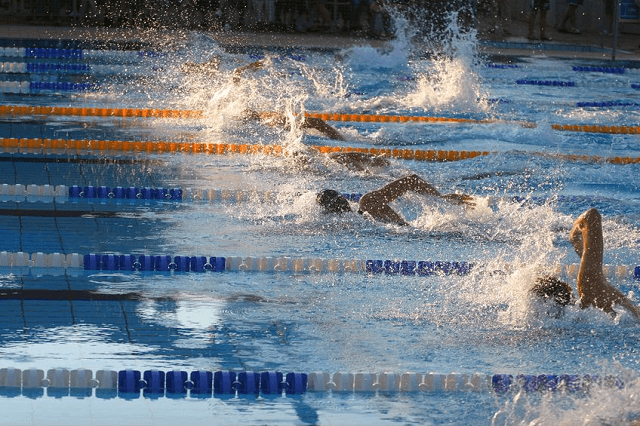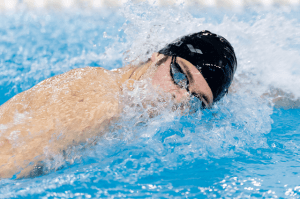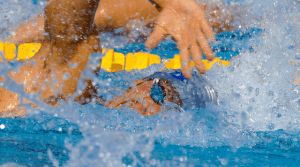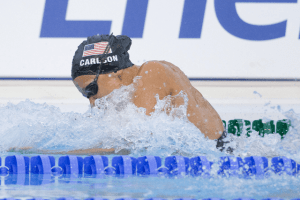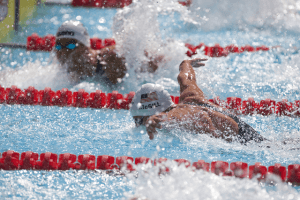Setting goals for your swimming seems exceptionally simple, doesn’t it? After all, you dream on what you want, maybe even write it out, and bingo! Goal achieved, right?
If setting and achieving goals were that simple, that straightforward, that easy, then goals would be getting toppled left, right and center. Goal setting on the outside appears simple and basic, but it’s simplicity belies the nuanced complexity of this process and skill.
Here are 5 reasons that your current swimming goals aren’t working:
1. You’re creating goals that can’t be easily tracked or measured.
One of the key measures of a correctly formed goal is having specificity. Vagueness creates unwanted wiggle room; by having very clear, indisputable numbers as a target you allow no room for misinterpretation or ambiguity.
Some areas of your swimming are very well suited to goal setting. Tangible, measurable things like times and to a lesser extent, placings, are very specific, and lend themselves well to this process. Other aspects of your swimming can be a little more challenging to measure and track. Things like technique, or motivation are difficult to quantify. Having a goal of “improving your technique” is a little vague, although this doesn’t make it something worth striving for.
So how can we measure the immeasurable, so that we can take an aim such as “improving technique” and make it something specific? Allotting time to the achievement of the goal would be one way. You could set aside 20 minutes per session, per day to straight technique work. This could include one on one coaching, or getting video of your stroke done so that you can get that instant feedback that helps speed the learning curve.
2. Avoid focusing energy on your long term goals.
This may seem counter-intuitive, but in order to achieve those long term goals, you need to put them aside for the time being.
Why?
They don’t instill any urgency. With a massive gap between you and the long term goal there is no requirement for you to act today. Or worse, there is so much to do, such an insurmountable load of work and improvement to be done that the sheer size of it dwarfs and discourages you.
Write out your long term goal. And then forget them and focus instead on the day-to-day work.
3. You’re setting too many goals.
There is such a thing as too much of a good thing, and goal setting ranks among those “good things.”
By setting a metric ton of different goals you are spreading your energy and focus out into a heap of different directions. Focus instead on a couple simple goals and dump all of your mental and physical energy into seeing those through. It is better to achieve highly in one area than to do mediocre or worse in many.
There are only a couple of things that you really need to do at a time to see exceptional progress. Goal setting, as a process, should be used to bring clarity of purpose to your swimming. Having a vague goal (“I want to be a fast swimmer!”) statement turns what may initially appear to be a solid goal into an excruciatingly expansive one where you attempt to do everything and only end up achieving mediocre or negligible results.
Keep your goals simple and few, and focus on them diligently.
4. You’re setting goals that aren’t yours.
Your goals are inextricably yours. Or, at least, they had better be.
Why do swimmers set goals? Because they are expected to? Or because they are doing so out of a perceived insecurity? That if you are a fast swimmer you’ll get the respect you want, the fame, and the satisfaction of being the best?
Or are you doing it because you are legitimately passionate about the sport of swimming and this goal is simply the form that this passion takes?
Feeling unhappy with where you are at right now might be the nudge you need to get started on chasing your swimming goals down with focused, unending energy. But don’t count on that unhappiness on being there to motivate you down the road.
When you are as passionate about the day to day practices, about improving in every little way as an athlete, about the grind and the process, it ceases to become work.
Yes, this type of devotion is not for everyone. And it is for this reason that we see so few faces grace the record books on the international stage.
Love your goals, and more specifically, learn to love the process of achieving your goals. Once you became enamored with the process, the results begin to melt into completion, easily and without much thought.
5. You’re hanging your happiness or sense of self-worth solely around the accomplishment of your goals.
Imagining yourself on the podium at the Olympics or your local state meet having a gold medal draped around your neck is a fantastic daydream that should motivate and inspire you. The chase should not, however, be something that defines or completes you. In other words, you shouldn’t be depending on the achievement of your goals — whose fruition also depends on how your competitors fare as well — to bring you happiness or an inflated sense of self-worth.
If your swimming career is only building up to one big, greasy goal at the end of the line, then you are going to be in for a major, anti-climactic letdown once you achieve it (or don’t). Chase your goals, but don’t defer the sense of self-worth and happiness, and certainly don’t rest your hopes of being “okay” or fixing yourself upon that final goal.
Goal setting is most fruitful when an athlete masters the process and takes pleasure and satisfaction in the journey. Swimming should give you so much more than just a fast time or records or medals; it should teach you how to commit to a goal, what makes your productive, give you the opportunity to share your experiences and wisdom with the next generation, and so on.
[Want an even more motivational goodness? Subscribe to the YourSwimBook motivational newsletter, where every Wednesday and Sunday I send out exclusive content made just for competitive swimmers that is not available anywhere else. It’s free, awesome, and will make you taller. Or something. Sign up by clicking here!]
SEE ALSO:
- Swimming Tips: The 7 Fundamentals of Fast Swimming
- How to Prevent Swimmer’s Shoulder
- 3 Drills for a Faster Freestyle Kick

